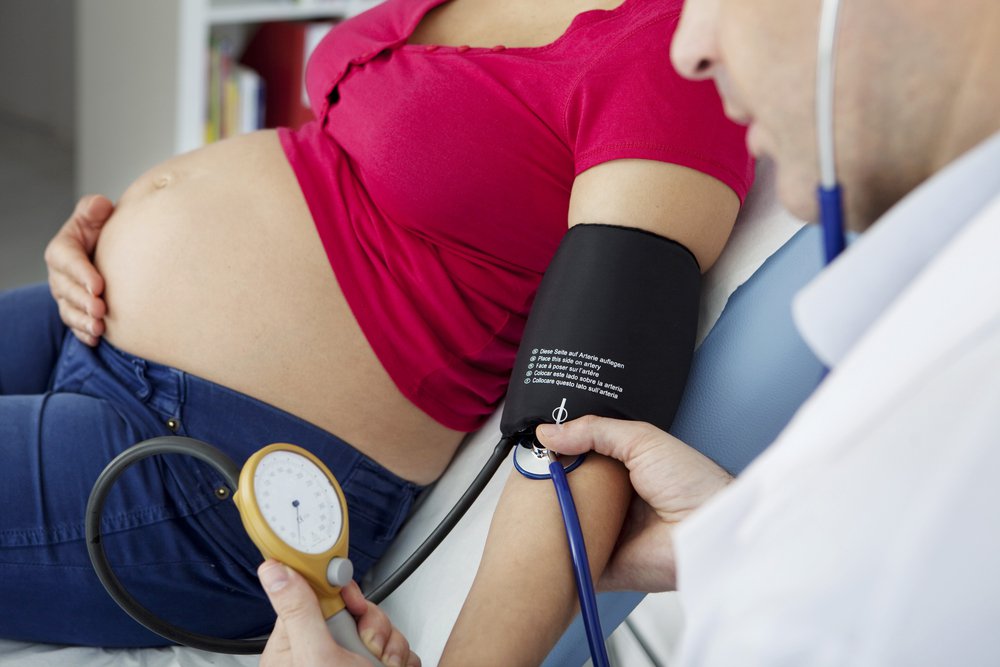Miscarriage is the most common type of pregnancy loss. It is the natural death of a fetus, occurs because it isn’t developing normally. Usually, it occurs at the 20th week of pregnancy. About 80% of miscarriages occur in the first trimester. The risk factors for miscarriage include an older parent, previous miscarriage, exposure to tobacco smoke, obesity, diabetes, thyroid problems, and drug or alcohol use. Scientists have identified Higher blood pressure before pregnancy linked to pregnancy loss.
Higher blood pressure before pregnancy linked to pregnancy loss.
It is regardless of whether the mother doesn’t diagnose with hypertension, elevated blood pressure before conception may raise the danger of pregnancy misfortune. This new research is indicated in the American Heart Association‘s journal Hypertension.
In this research, they enrolled women who had already experienced at least one pregnancy loss and were trying again. Though the study cannot achieve end conclusion, it is the first study considering preconception blood pressure and reproductive outcomes in healthy women not diagnosed with high blood pressure or heart disease.
Elevated blood pressure among youthful adults is related to a higher danger of coronary illness sometime down the road, and this investigation proposes it might likewise affect regenerative wellbeing,” said Carrie J. Nobles, Ph.D., lead creator of the investigation and a postdoctoral individual in the Epidemiology Branch of the Eunice Kennedy Shriver National Institute for Child Health and Human Development (NICHD) in Bethesda, Maryland.
Study Highlights
- Scientists examined 1,228 ladies (normal age 28.7 years, 95 percent white) who had officially experienced 1-2 pregnancy misfortunes and where right now endeavoring to wind up pregnant.
- The ladies were a piece of a clinical trial to decide if taking low-dose headache medicines like aspirin may lower the danger of pregnancy loss. Though it made no difference in the impact of blood pressure on pregnancy loss, the researchers found.
- Before the study, the measurement of blood pressure in ladies was examined once before they were about to conceive. They were again analyzed and blood pressure was taken into account at early pregnancy.
- Normal pulse preceding pregnancy was 111.6 mm Hg/72.5 mm Hg.
- Out of the 797 women who conceived within six months, 24 percent suffered a pregnancy loss. Hence, the researchers found that blood pressure prior to conception or during early pregnancy had a direct link to the risk of pregnancy loss.
- Risk of pregnancy loss increases about 18 percent for every 10-point increase in a young woman’s diastolic blood pressure.
- The risk also increases about 17 percent for every 10-point increase in mean arterial pressure or the average blood pressure a person has during an entire heartbeat cycle.
Enrique F. Schisterman, Ph.D., senior author of the study and Senior Investigator said, “The impact of cardiovascular risk factors starts really early in life. Physicians treating women of reproductive age should pay attention to slightly elevated blood pressure because it may have other not-well-recognized effects, such as adverse pregnancy outcome. Preconception is a previously unrecognized critical window for intervention such as lifestyle changes that can help prevent later heart disease and may also improve reproductive health.”
As the study was conducted in women who already had experienced a miscarriage, it is unclear whether the results can be generalized to all young women. Additionally, the study was mostly composed of white participants, and further research is needed to ensure the results apply to women of different races.
It’s not completely clear whether blood pressure itself increases the risk of pregnancy loss, or whether it is a marker of other chronic diseases such as obesity or diabetes.
Take care of yourself after a miscarriage…
Below guidelines may found useful for a lady who has suffered a recent pregnancy loss.
- Give yourself a chance to heal, both physically and emotionally. Get lots of rest, especially for the first 24 hours.
- Take your temperature in the evening for the next 5 days.
- You might have bleeding like a menstrual period for a few days. Then you could have spotting on and off for up to 4 weeks. You might have mild cramping for a day or two.
- Use pads for the first 24 hours. Then (if you aren’t bleeding heavily) you may use tampons. Change them at least every 8 hours.
- Don’t have intercourse until the bleeding has stopped. (It’s a good idea to use birth control for the first month even if you do want to get pregnant again soon.)
- Don’t douche.
